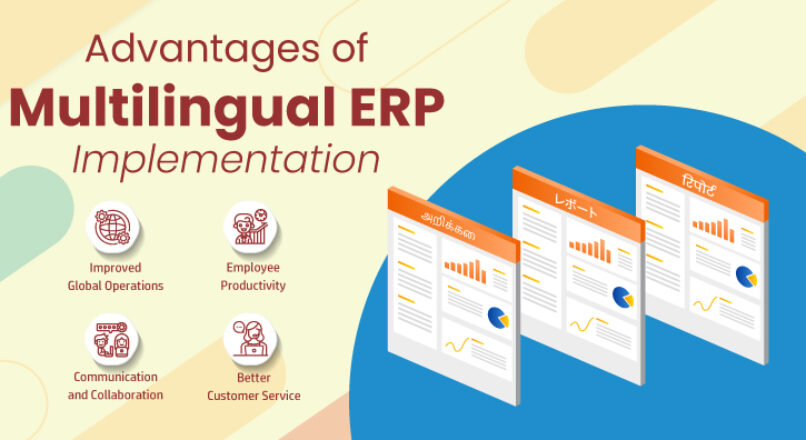
The Impact of Multilingual ERP on Business Growth- LinguaSol
When effectively utilized, languages can open doors to new opportunities in diverse markets. However, without proper management, they can act as barriers, complicating communication and hindering business operations.
Enterprise Resource Planning (ERP) software, being central to many businesses’ operations, is not immune to linguistic challenges. For companies operating across multiple regions, using a centralized multilingual ERP system is essential to ensure seamless business operations across various locations and languages.
So, how does multilingual ERP software benefit organizations? Let’s explore seven key advantages:
7 Benefits of Implementing Multilingual ERP Software
1. Streamlined Global Operations Companies with global operations often face difficulties in standardizing processes. A multilingual ERP provides a unified system that allows each location to operate in their local language, enabling easier management and the maintenance of global standards. This ensures that all branches` or international offices have real-time access to relevant data in their preferred language, promoting more consistent and informed decision-making.
2. Improved Communication and Collaboration Multilingual ERP systems foster better communication among departments and subsidiaries across various regions. By allowing employees to use the system in their native language, these platforms help reduce misunderstandings and improve comprehension of messages and reports. They facilitate effective collaboration, uniting teams from diverse linguistic and cultural backgrounds.
3. Boosted Employee Productivity By offering ERP software in employees’ native languages, multilingual systems help reduce cognitive load, allowing employees to work more efficiently and accurately. With user guides, training materials, and manuals available in local languages, employees can learn and use the system more effectively, leading to higher productivity levels.
4. Enhanced Customer Service Language barriers often prevent businesses from providing excellent customer service. A multilingual ERP system can address this by allowing customer-facing employees to interact with customers in their preferred language. This improves communication, enhances customer satisfaction, and creates a more personalized service experience.
5. Cost Efficiency Maintaining separate ERP systems for different regions is both costly and inefficient. A multilingual ERP system consolidates operations into one platform, eliminating the need for multiple systems and minimizing data silos. This approach reduces management costs, simplifies maintenance, and improves system upgrades, providing a more cost-effective solution for businesses.
6. Cultural Adaptation Employees can find it frustrating to use software they don’t fully understand, which can lower satisfaction and productivity. A multilingual ERP system helps employees feel valued by allowing them to interact with the software in their own language, boosting morale and improving retention rates.
7. Scalability As businesses expand into new regions with diverse linguistic needs, a multilingual ERP system allows for easy scaling. It can accommodate additional languages without significant reconfiguration, enabling companies to enter new markets more efficiently while ensuring the system adapts to the growing needs of the business.
We, LinguaSol, are a leading provider of translation services, serving a global client base with expertise in over 200 languages. We offer comprehensive ERP translation solutions, including localization, translation of various report formats, and the development of terminology and glossaries. Our team of experts ensures precise and culturally relevant translations, taking into account language nuances, context, and cultural differences to deliver high-quality results across all aspects of your ERP system.

Leave a reply